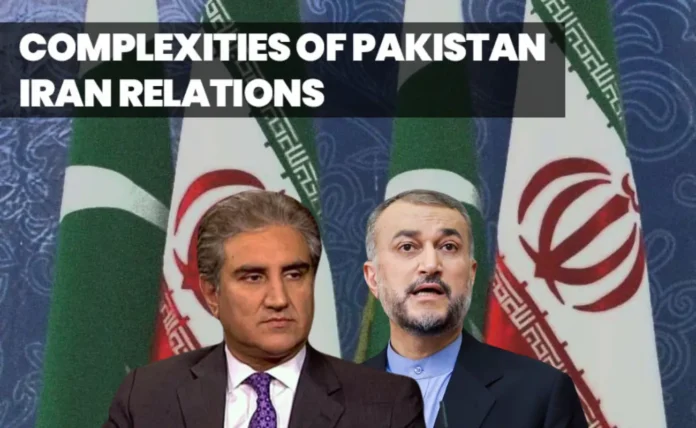Complexities of Pakistan-Iran Relations: A Study of Current Dynamics and Border Conflicts
Iran and Pakistan have a long history of government, cultural, and economic relations that have included both collaboration and sometimes confrontation. Many factors have affected their relationship in recent years, including regional dynamics, economic interests, and security concerns. This article analyze how Pakistan and Iran are now cooperating, focusing on areas where they might assist each other and issues produced by border conflicts.
Historical Background
Pakistan and Iran share an extended history of social and political ties. However, current diplomatic members of the family with Pakistan have been mounted in 1947, when it won independence. Notwithstanding periodic disagreements, the two nations have persevered diplomatic family members and partners in various industries together with power, commercial enterprise, and security.
Areas of Cooperation
Pakistan and Iran have a protracted records of social and political members of the family. Pakistan and Iran, however, have worked in several sectors thru cutting-edge diplomacy, together with electricity, trade, and local protection. The two nations are contributors of some of nearby corporations, including the Economic Participation Affiliation (ECO) and the Association of Islamic Collaboration (OIC), both of which offer boards for economic and political cooperation.
Furthermore, Pakistan and Iran have collaborated on infrastructure tasks, specifically within the electricity zone, together with the Iran-Pakistan gas pipeline. Tic links with Pakistan began in 1947 when it gained independence. Despite periodic tensions, the two countries have maintained strong relations and collaborated in a variety of areas including as energy, business, and security.
Border Conflicts of Complexities of Pakistan-Iran Relations
Despite their common interests and historical links, Pakistan and Iran have had issues along their border. The porous border has been a source of trafficking, illegal relocation, and cross-border psychological warfare, causing frequent tensions between the two countries. Iran has voiced worry about Pakistan’s capacity to regulate its side of the border, while Pakistan has accused Iran of sheltering militants who carry out strikes on its territory.
Efforts for Resolution
- Pakistan and Iran have both highlighted the need of addressing border concerns and increasing security cooperation.
- Recent action to enhance border management have included increased patrols, intelligence sharing, and security force cooperation.
- Furthermore, optional debate has been initiated to address similar concerns and enhance mutual relationships.
Impact of Regional Dynamics
- Regional issues, such as the crises in Afghanistan and the Middle East, have an impact on Pakistan-Iran relations.
- The two countries have had to adapt to delicate ties with countries such as India and Saudi Arabia, which has had an influence on their mutual relations.
The district’s evolving international scene emphasize the importance of holding peace while also protecting common interests.
Conclusion
Pakistan and Iran have a complicated relationship defined by connect in a range of sectors as well as border tensions. Despite efforts to address line challenges and improve security engagement, the complicated local elements continue to create mutual links. To develop a future relationship that is stable and helpful to both Pakistan and Iran, they must sustain politic engagement, respect each other’s authority, and combine to address challenges.





